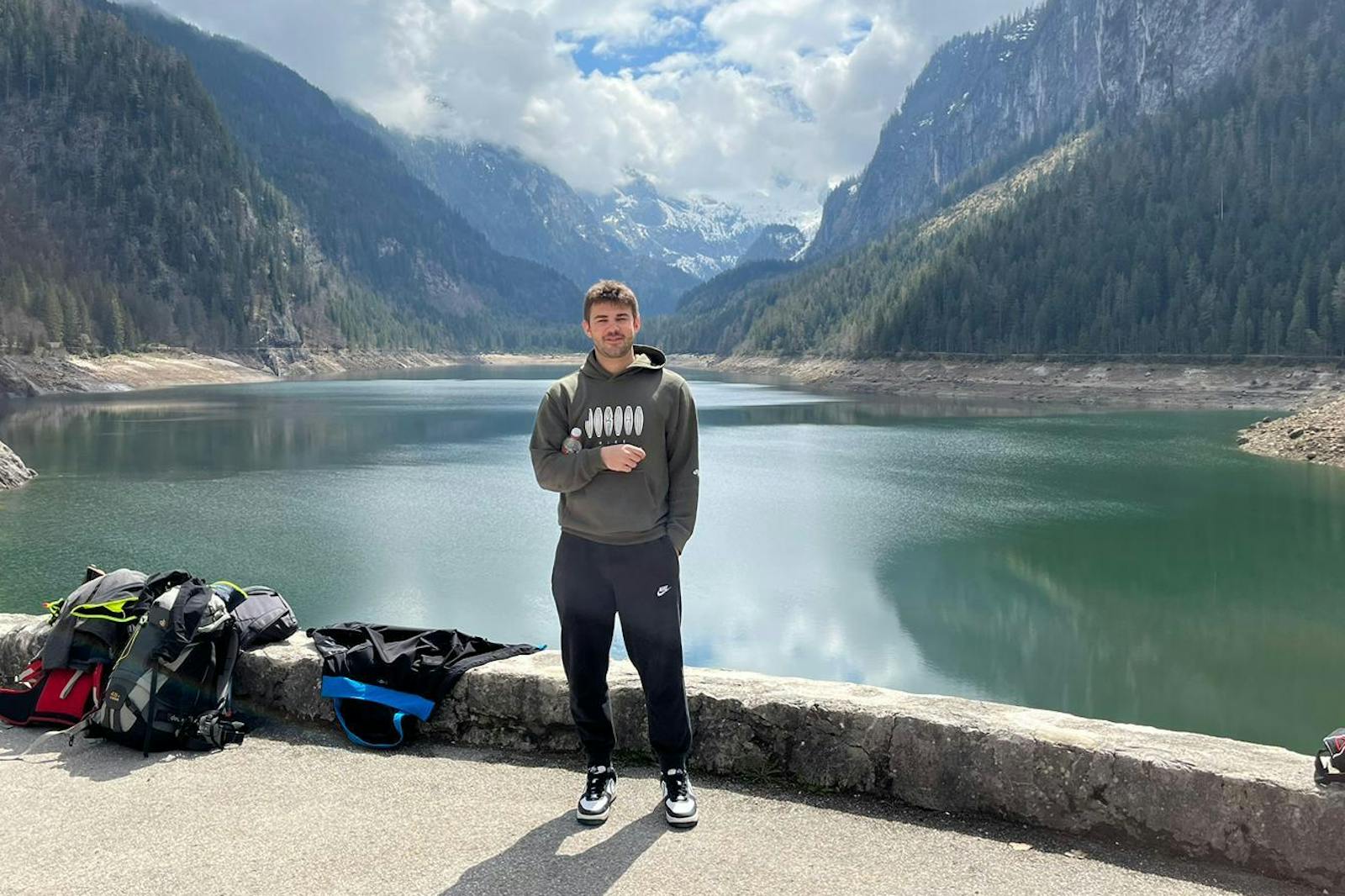22 April 2024
Dominik Hrastić: Full-stack development in four weeks?

One could say Dominik is a social butterfly. Describing himself as an extrovert to the fullest, he loves working with people and enjoys coding just as much.
A graduate of the Faculty of Electrical Engineering and Computing (FER) in Zagreb, he built a strong technical foundation over the course of his education. That gave him confidence at work. Colleagues know his sense of responsibility, and that you can always ask him for help.
- I didn’t dream about becoming a football player or a firefighter. Since my early teens, I wanted to be a programmer, Dominik reveals. He credits his inspiring computer science teacher for his early interest. - Without his mentorship, I wouldn't be where I am today, he said.
First steps in the automotive industry
He landed his first job while studying. It was in the automotive industry, but building software wasn’t their core business.
- It wasn't a typical IT company, so I missed having a team of developers around me to learn from. I built applications on my own, which often meant relying on self-learning and on my own resourcefulness. Around my graduation time, I knew I wanted to join a company where I could learn and advance faster. When I saw an open position for a front-end developer at Emil Frey Digital, I decided to apply.
„Without a team, your learning and progress are slower."
Getting off to a good start
At EFD, he joined the team that developed software for car sales.
- They gave me a warm welcome and it didn't take long for us to bond. Mihael Lazar was my mentor, always there to answer my questions and lend a helping hand. The same goes for our team lead Antonio Ćosić, and the rest of the crew. They helped me settle into my role quickly. I started by fixing minor bugs and getting to know scrum. Then I started developing new features. Ultimately, I was able to take the lead on certain things, suggest new solutions or improvements, and share stuff I know with others.

Bridging two worlds: Frontend and backend
In most cases, backend developers learn frontend to become full-stack developers. Dominik took the opposite route.
- At heart, I'm a backend guy. I'm drawn to the backend because I need to think about system architecture, optimizations, and deal with code complexities. There's a lot about it that really interests me.
- Here, we use Java for the backend and Angular for the frontend, he adds. - In my last job, I handled everything from frontend and backend to DevOps, but I didn’t work with these languages. Now I know that learning Angular is much easier if you've already worked with React. Java, a backend language, is tougher. It's robust and has a lot of boilerplate code, especially in enterprise Java. In that sense, moving to a new job and getting used to a new frontend stack is much easier, he concluded.
- When someone asks me what I do, I just say I'm a developer. For me, that means I have expertise in both frontend and backend. I would like to learn more about DevOps to round out my skill set, he said.
Clone the code and dive right in
When he joined just over a year ago, he started with frontend tasks. After getting a good grasp of the architecture and how everything works, he decided to take on a backend project by cloning its code and diving right in.
- Over the past few weeks, I've been diving deeper into the backend. I started off by fixing simpler bugs. Then I developed a feature along with its integrations. I have both the frontend and backend running locally, which makes it easy to switch between them depending on the tasks at hand.
- There always seems to be a bit more to tackle on the backend. If you mess up a line of code in frontend, it usually doesn't have a direct impact on cash flow. But on the backend, you've got to be extra careful. Issues tend to be more complex. I think that's what drew me to it, he explained.
"For me, life is all about problem-solving. It's like a hobby. The more complex the problem, the more I enjoy tackling it."
Dominik says learning is our own responsibility - it is up to us to do our research and get better at what we do. But having good colleagues around will make it easier.
- They bring in a different perspective or remind me of something I'd forgotten. To give you an example, it is helpful to get feedback on the code quality in my merge requests. Sometimes the code is good, sometimes it needs improvement. Such an environment helps you grow faster. Perhaps my favourite thing about this job are the friendly and approachable colleagues.

Efficiency of full stack developer
Why is being a full-stack developer better than specializing solely in frontend or backend?
- Take feature development as an example. Often, the frontend team ends up waiting on the backend to finish and deploy their part. This back-and-forth can cause delays and inefficiencies. As a full-stack developer, you're able to handle it all, cutting out the waiting and streamlining things, he emphasized.
"I want to be a developer who tackles problems head-on. I don't want to limit myself to just frontend or backend."
- I like to think of myself as a developer who can handle both frontend and backend work, regardless of the technology or type of code. In fact, I think it's important to have a solid understanding of both areas first. Then you can specialize further in one area, if you want to. As a full-stack developer, you're not just thinking about the user experience. You are also considering optimizations and how backend code can best support frontend functionality.
We should appreciate the role of our teachers
Recently he became a mentor to a fellow backend colleague. He says mentoring isn't just about technical stuff. It requires soft skills and the ability to share what you know.
- My colleague Marta and I held an internal workshop for frontend developers, which seemed to go well. I think passing on knowledge comes naturally to me. I even have this idea that when I hit my 50s I could do more teaching. To this day I am thankful to my teacher for inspiring me and helping me find my calling. If you can help someone in a similar way, I think you’ve made an impact. Teaching is a demanding role that generally isn't appreciated enough, Dominik said.
He tells me about a book he’s just read. It talks about how we essentially have 60 working hours a week: 40 at work and 20 outside of it.
- During that time between work and sports, those 20 hours, I study new technologies or those I already use. You'd be surprised how much you can achieve with the right mindset. Time management is important, and you get better at it over time. Finally, it is important to balance your life and work, he said.
"With good time management and a positive attitude, you can achieve anything."

Paddle tennis and half-marathons
Dominik has always been passionate about sports, and it's something he is proud of. Before heading to study, he was into football seriously. He still plays occasionally.
- Right now I'm into paddle tennis, which has become quite popular worldwide. I also love running. I take part in races, usually around 10 kilometres. I'm preparing for a half-marathon, too, which I hope to run either later this year or next year. You know what they say: A healthy body, a healthy mind. At the end of the day, that mindset influences how I approach and get my work done.
Dominik is also known for being very sociable and outgoing. He describes himself as an extrovert to the fullest.
- I can get along with just about anyone. I enjoy cracking jokes, grabbing coffee or beer with colleagues after hours, and going on group hikes. At work, I aim to be professional and available whenever my colleagues need me, said Dominik.
